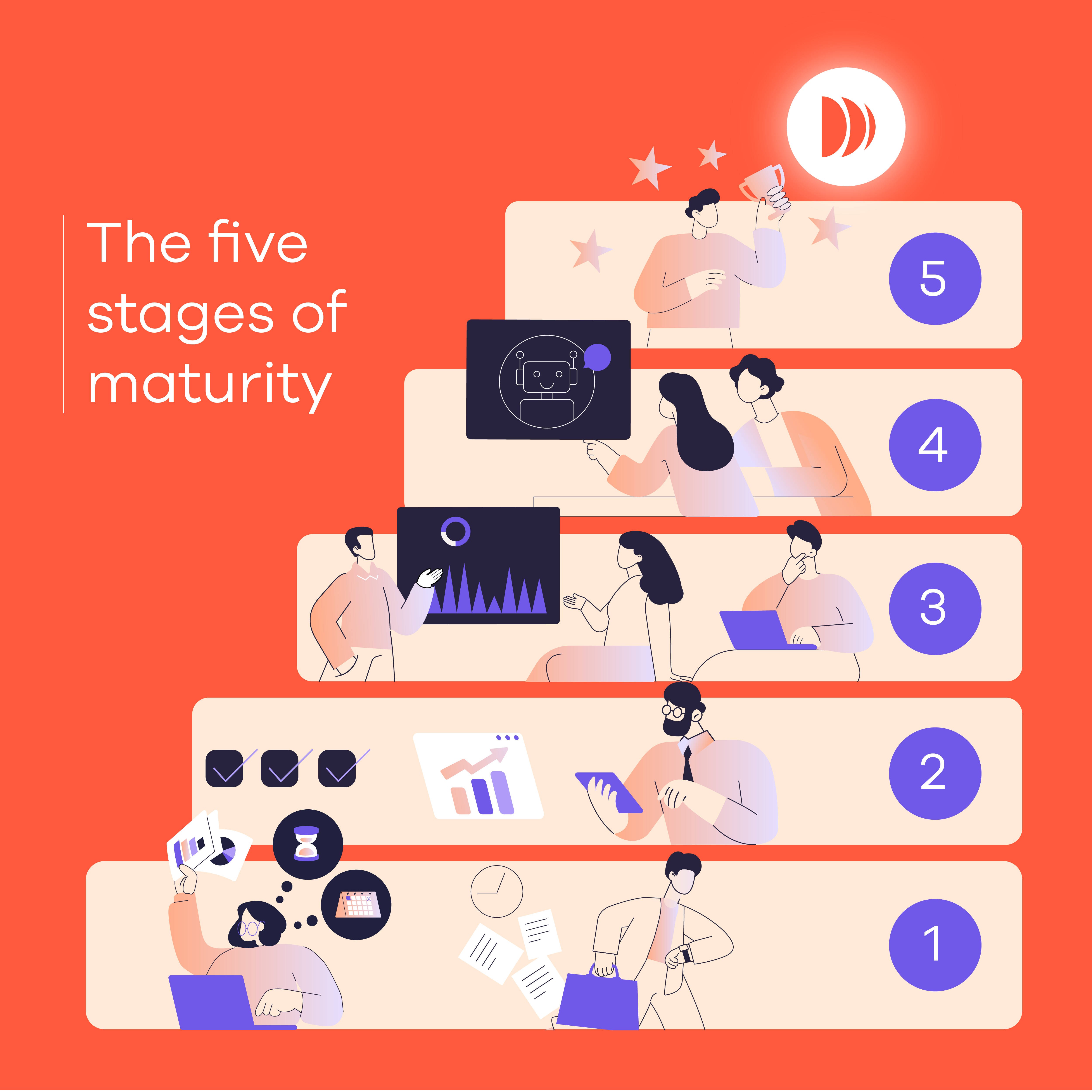Request a Dayshape demo
Get in touch and learn first-hand how Dayshape can help boost profitability, improve client service, and keep your teams happy.
Platform
Strategic resource management
Optimize margins. Grow revenue.
Plan reliably. Act confidently.
Inspire teams. Delight clients.
Enterprise scalability
Use Cases
How Dayshape helps firms
10 ways for resource managers to elevate their impact

Elevate your role, expand your influence, and drive impact across your firm.
Listen nowCustomer Success
Value at every stage
Company
More about Dayshape
Resources
Learn more
Resources
Featured resources
Resource Management Maturity

The complete blueprint to transform your resource management.
Learn moreAn edited version of this article was originally published on Accounting Web.
You’ll often find, tucked away in the corner of most accounting firms websites is a section on diversity and inclusion, where efforts to promote fairness and equality within the organization are showcased.
While it is clear the world of professional services is taking diversity and inclusion more seriously today than ten years ago, significant doubts still remain over how much has changed, particularly while archaic job assignment and resource management methods remain in place.
The accounting regulator last year criticised the sector for its lack of efforts to encourage diversity and overhaul promotion schemes.
The Institute of Chartered Accountants in England and Wales (ICAEW) run diversity hub has researched the topic, and it makes for ugly reading.
Carla Edgley, ICAEW author and business lecturer at Cardiff Business School, said, “The overall picture we have seen regarding responses and outcomes is uneven, especially around change management at more senior levels.”
“There are systemic problems with the lack of diversity at senior level, and at the crux of these is tension between ideas about merit and diversity. The business case for promotion still centres on traditional promotion criteria that privileges white males.”
The Hampton-Alexander Review of women in the boardroom recently announced that some 94% of FTSE 100 companies have male CEOs; prompting the Financial Reporting Council (FRC) to note the irony in accounting firms advising such businesses on diversity strategies.
Women make up just 17% of partners at accounting firms on average, the FRC found, and the sector also lags behind other UK businesses in promoting black, Asian and minority ethnic (BAME) individuals to partnership level.
The ICAEW found that rising through the ranks involves finding a mentor in the right peer group and mimicking their work style, with a clear bias against women, as well as those who work part-time or flexible hours.
Projects are often assigned to favoured members of staff and managers and partners regularly choose specific people, usually those with whom they have worked before.
Over the last 10 years, multiple pieces of research support the economic argument for greater diversity. This even includes the ICAEW report which states “creating a fair place to work has commercial benefits”.
In 2012, Credit Suisse found that large-cap companies with at least one woman on the board outperformed those peers with no women on the board by 26% over the previous six years.
And in 2018, McKinsey reported that companies in the top bracket for executive-team gender diversity were 21% more likely to experience above-average profitability than those in the bottom quartile.
There are signs that some big accounting firms are shifting their operations to ensure diversity and inclusion are central to the business’ functioning, recognizing how crucial it is to their future.
Dave Dunkley, chief executive of Grant Thornton, said, “To advise our clients effectively it is vital that we offer diverse perspectives – addressing this head-on goes beyond gender and ethnicity into a wider problem to do with inclusion and it is something we are addressing with urgency.” The outcomes are felt way beyond the bottom line and into areas such as staff retention and workplace atmosphere, Dunkley noted.
US accountants Plante Moran last year hired its first diversity and inclusion leader, and the firm is explicit in its belief that diverse teams are more valuable than non-diverse teams. It won a large Chinese project due to having staff based in Chicago who spoke Mandarin, when rival bids had been constructed using computer software to translate proposals that the client couldn’t understand.
As part of the inclusivity push, forward-thinking accounting firms are tackling the problem at the root. Technology solutions now exist that can tear down structural and cultural barriers blocking the career progression of minorities, making use of automated planning systems that are built to foster a bias-free approach.
Hannah O'Brien, an analyst at Dayshape, a resource planning software provider, said, “The big firms are auditing companies of all different types; that is where the power of diversity in accounting and keeping your business inclusive lies.”
O'Brien continued, “Getting new ideas and new people into the group, changing who is working with whom, can really encourage diversity in audit work, where sometimes people think the job is just about the numbers. Employee satisfaction is where so much positive change starts, and the bigger firms are all about resource augmentation: employee satisfaction is directly linked to the type of work they get to do.”
Some large accounting firms have introduced intelligent automation tools into their assignment protocols, enabling a fairer and more transparent distribution of tasks that is based not on who you are, but what skills the job requires.
O’Brien said, “Anecdotally we hear a lot of complaints about how scheduling inside accounting firms is handled. Many systems are old, and they almost all work on a first-come-first-served basis: whichever managers and partners get their plans in first tend to choose specific people, those with whom they’ve worked before.”
Firms that have implemented change management across their resourcing departments to capture end-to-end planning processes in one system have reported transformative results.
O'Brien said, “Firms need a system in place in which everything is visible, and resource managers can see what demand looks like over time, not just in the short term, but over the course of the year through intelligent forecasting. With full visibility, managers begin to request the type of person they need, rather than the specific person they want.”
Jobs are no longer handed out to practitioners who are unsuitable or overworked, and junior talent gets a chance to build up new skills from the experience, reducing the pressure on senior staff and cutting some of the excessive hours more senior staff are struggling with. This can have downstream positive effects on profitability and staff retention.
The regulator and several industry associations have said while there are signs of progress, the profession still has some way to go in the transition to becoming more diverse. The FRC said the commercial benefits of doing so are notable, and the business case is clear, it’s up to the industry to act.
Accounting firms struggling to increase profitability may be unaware of the power of diversity and the compelling benefits which intelligent resource management can bring.
O’Brien said, “In the old model of resourcing, the same team does things over and over again, because the manager keeps putting their names down. But if a business is having problems sticking to budget or is consistently looking for new staff, perhaps it’s time to look at the processes around how that work is assigned? Revamping your culture can be as simple as changing how you plan.”
Get the latest insights and updates delivered to your inbox weekly.
Explore our latest insights and strategies for success.

8 min read

4 min read

5 min read
Discover how AI can transform your resource management and enhance your project delivery.

Get in touch and learn first-hand how Dayshape can help boost profitability, improve client service, and keep your teams happy.
